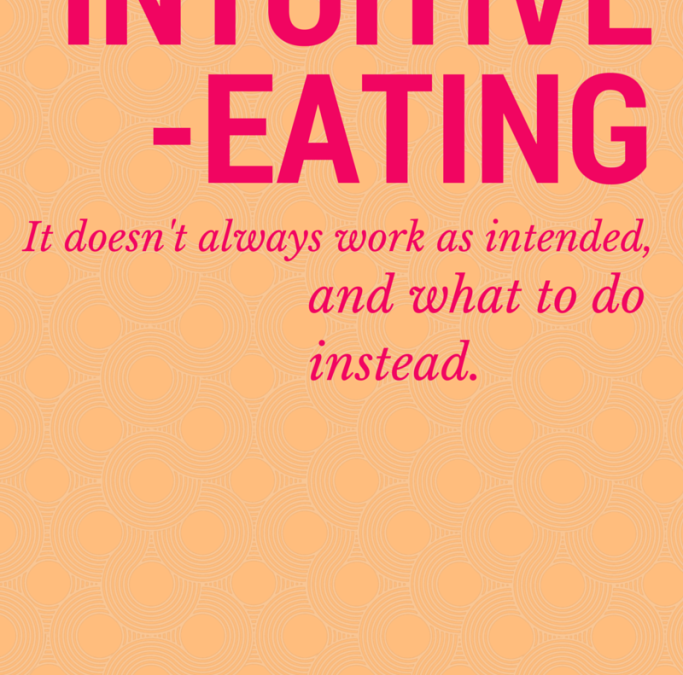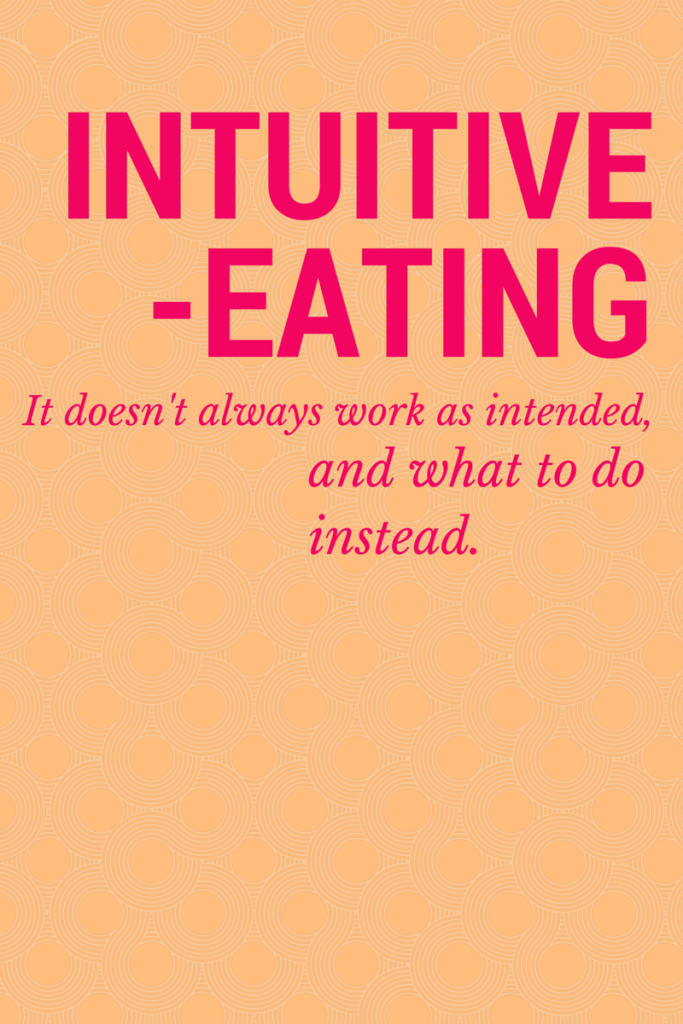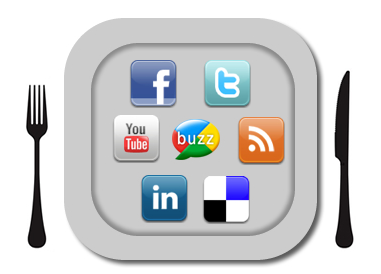Some thoughts and discussions from me.
Hi, friends! Before we dive into today’s post, I wanted to announce that I’m officially taking on new online clients again. If you’re interested in working with me, or learning more, please email me at yourtrainerpaige@gmail.com
Also, locals: if you’re thinking about signing up for Wednesday’s boot camp (taught by me, hosted by Naked Juice,) make sure you sign up today! It’s going to be a blast! You can RSVP HERE.
Intuitive Eating. It’s a fancy term for eating whatever you feel your body needs and developing a healthier relationship with food, your body, and the relationship between the two. Sounds great, right?
However, there’s a couple problems here:
#1 – External motivations are always present. Eating intuitively turns into eating how you think you should feel or how something has made you feel. Intution gets turned into ‘shoulds’ or the ‘wants.’ Whether it’s a picture of someone’s meal that you saw on instagram or that commercial for the double brownie shake, external sources of influence are a constant.
#2 – It’s damn hard to become in tune with your body! Especially if you’re just starting out with new goals, like losing weight, gaining strength, etc., sometimes “eating intuitively” just doesn’t do the job.
Listen, I’m all for listening to your body, but it’s such a learning process, and one that takes a considerable amount of time, energy, and focus, mainly because of all of the external influence bombarding our daily lives.
Additionally, a lot of the times we eat in excess not because we’re simply hungry. There are psychological factors, emotional issues, and inactivity that contribute.
Going about achieving these health and fitness goals through intuitive eating might not be the best practice for someone to reach their health goals. Not only would that likely lead to overwhelm, a lack of focus, and eventual dissolution of the goal, but it’d also be a pretty big time waster. Put more bluntly, if your intuition is off, then an intuitive eating approach would be fruitless.
What to Do Instead?
Now, one of the major draws of intuitive eating is you don’t have to obsess over every morsel you put into your mouth, and I am 100% on board with this notion. I don’t have any of my clients counting calories, and in fact, some of my clients don’t count macronutrient grams or calories at all.
First and foremost, a plan is needed. How detailed that plan is with your daily meals and snacks is up to you and your doctor or coach (or your own research, etc.) In an ideal world, this plan would take aspects of intuitive eating, but also provide enough structure for goal success.
The Plan
In my experience, there are several components of a success nutrition ‘plan:’
- knowing what you want to achieve through better nutrition (more energy, better sleep, fat loss, strength gain, etc.)
- knowing how much, what, and when you’re currently eating
- determining what you need to do – and how aggressive your approach should be – to get accomplish what you want to achieve
The Plan + Intuitive Eating
As far as intuitive eating goes, I find the following practices very helpful to incorporate into your plan:
- deciphering hunger from another emotion (boredom, loneliness, etc.) and stopping to ask yourself “am I hungry?” before eating
- recording, or thinking about how you feel after eating a certain meal: energetic? sluggish? normal? focused?
- deciphering the feeling of satisfaction from the feeling of being “overstuffed”
- accept your body as it is, whilst deciding to make a change for the better
- eating the vitamins and nutrients to support a healthy body
It’s as simple and as complicated as that.
[Tweet “When Intuitive Eating Isn’t So Intuitive via @TrainerPaige”]
What are your thoughts on intuitive eating??




awesome post girl
Those are some awesome tips. Sometimes I find myself eating when I think I “should” be, even when I’m not hungry. For example it’s lunch time but I’m not hungry yet.
Fiona @ Get Fit Fiona recently posted…Looking Back at February 2015 and March 2015 Goals
listening to your body is definitely hard. I try to ignore all common trends and listen to what i crave. Which usually ends up leftovers for breakfast and healthy bites and dessert before lunch. But hey, it works. And thats what counts, right? I love your plan. xxoo and YOU
Great tips.
I make sure I pack proper healthy food daily, and I only eat when I get hungry. (sometimes I graze through out the day, other days I need to eat earlier than others due to be hungry).
At work they order food for employees on Fridays. I opt out to stay on track and eat whole foods. The food comes at 1140am, and everyone runs to the kitchen. I had just only finished my morning snack not too long ago, so no way I can eat lunch at that time!
(and they all think I am crazy for not wanting free food. But we are talking Chinese food, calzones, pizza, overstuffed subs, etc)